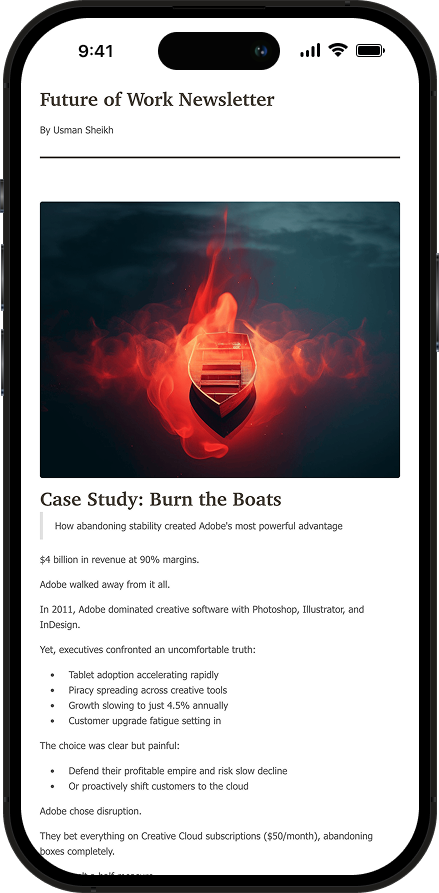6 May 2025 • 2 min read
Trust Before Technology
Why 70,000 federal jobs won't be automated until we bridge the trust gap
Ambitious Claims vs. Real-World Execution
"70,000 Federal Jobs Replaced by AI This Year?"
Headlines like this mistake ambition for execution.
Anthony Jancso, ex-Palantir entrepreneur closely tied to DOGE, claims his startup can swiftly automate tens of thousands of government roles. (link in the comments)
His firm, AccelerateX, rapidly scaled:
→ From local San Francisco AI hackathons
→ To federal workflow automation ambitions
→ Backed by influential investors (Palantir, OpenAI)
The problem isn't ambition.
It's deploying technology that isn't yet mature enough for sectors where errors carry severe consequences.
The Structural Paradox
The gap between techno-optimism and grounded realism will only widen.
This tension is especially pronounced in sensitive domains like government, creating structural paradoxes:
→ AI evolves rapidly; policies evolve slowly
→ Startups disrupt; public services stabilize
→ Technology accelerates; regulation moderates
This fundamental mismatch can't be bridged by technology alone.
It's repeatedly triggered public failures:
→ Healthcare gov: rushed rollout disrupted healthcare access, causing immediate harm and eroding trust.
→ IRS modernization: repeated failures resulted in wasting resources and diminishing public confidence.
Building Sustainable Innovation
The greatest risk isn't visible AI failures.
It's the gradual, invisible erosion of credibility that undermines future innovation.
Leaders, especially in highly regulated sectors, must strategically approach AI differently:
→ Pilot rigorously: small-scale, controlled
→ Validate aggressively: prove real-world reliability
→ Communicate transparently: clarify AI's capabilities and limits
Technology doesn't replace trust, it relies on it.
Build trust first. Innovation follows.
Summary
Headlines touting AI replacing 70,000 federal jobs highlight the gap between ambition and reality.
Technology needs trust to thrive. Build trust first, then innovate.
Interested? Join the discussion in Linkedin
